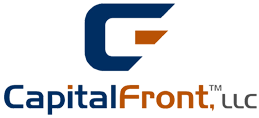jasonk
Alternatives to Merchant Cash Advances
If you are in the process of deciding which type of business funding is best suited for your financial situation it is important to understand that there is not a one size fits all loan/advance that works best for every company. The truth is, a merchant cash advance may provide YOUR business with the best funding option while a debt consolidation
How does a Merchant Cash Advance Work?
We have gone into greater detail of the benefits of a merchant cash advance but have not described the ins and outs of how the whole process works. If you are looking for means of financing you most likely already know that through a merchant cash advance you can receive upfront funding on future credit card and debit card sales. But
Pros & Cons of Merchant Cash Advances
There will be benefits and disadvantages to every type of business loan and business funding source regardless of the type you decide to go with. There is no one size fits all funding source out there that is best. There is however a best solution for YOUR needs. If your business does not have a lot of monthly credit card
Benefits of a Merchant Cash Advane
What is a Merchant Cash Advance? If you have found yourself reading this article, chances are you are most likely a business owner looking for quick funding and are weighing out the pro’s and con’s of the plethora of business funding options out there. A merchant cash advance is a lump-sum payment to a business in exchange for an agreed-upon percentage
Merchant Cash Advance 101
What is a Merchant Cash Advance? A merchant cash advance is structured as an upfront lump-sum payment to a business in exchange for an agreed-upon percentage of future credit card and debit card sales. You can read in more detail the benefits of merchant cash advances. How does a Merchant Cash Advance Work? In layman’s terms, following the approval of
Factoring vs Alternative Financing
Factoring occurs when a business sells its receivables to a 3rd party (factoring) company at a discount. The factoring company pays the business immediately and is paid by your customers later. If you are unfamiliar with the ins and outs of factoring accounts receivables we go in greater detail in a previous article, Factoring & Accounts Receivable Financing. What you have
Factoring Myths
According to Trade and Receivables Finance, the global factoring industry has eclipsed the $3 trillion mark. That’s trillion with a t. In the Untied States alone factoring is approaching a $100 billion industry. Even though factoring helps thousands of companies every year, some business owners have a negative perception regarding the practice. Financing receivables has been around for centuries yet
Benefits of Factoring
If you own a business that offers payment terms for your customers of net 30, net 60 or even net 90, there is a good chance that you may experience cash flow issues from time to time. It is nothing to be ashamed about. In fact, in the manufacturing world it can show a sign of growth. Let’s say you are a manufacturer and have
Factoring 101 Basics
If you are new to the factoring and/or debt consolidation loans industry some of the lingo may be a bit difficult to understand. We decided to dedicate a blog post to show an example of factoring and also to define common terminology used in Factoring & Accounts Receivable Financing. Before we jump into a glossary of terms you should know
Factoring & Accounts Receivable Financing
What is Factoring? Also commonly referred to as accounts receivable financing, in factoring a business sells its receivables to a 3rd party (factoring) company at a discount. The factoring company pays the business immediately and is paid by your customers later. Factoring is becoming more prevalent as business owners realize it is a debt-free way to get paid sooner so






